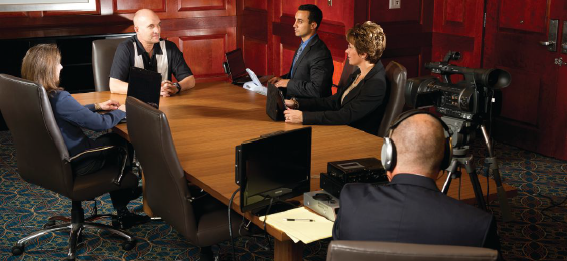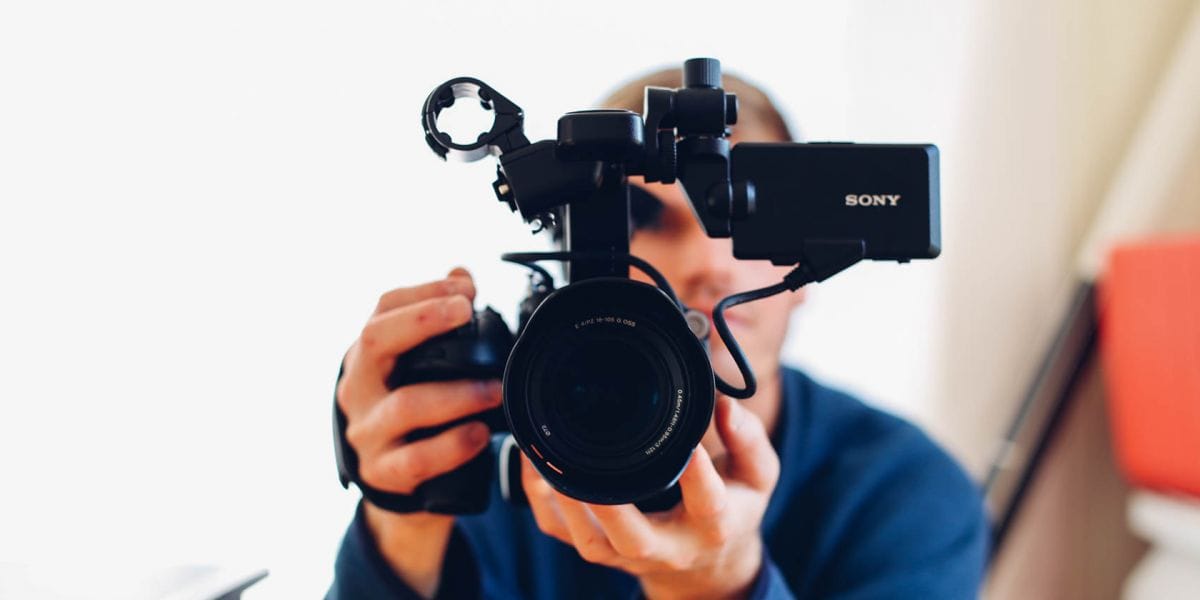Experienced Legal Videography for Capturing Detailed Evidence.
Experienced Legal Videography for Capturing Detailed Evidence.
Blog Article
The Function of Legal Videography in Depositions and Tests
Legal videography has actually emerged as a necessary tool in both depositions and trials, giving a complex approach to documenting witness testimonies. As lawful professionals increasingly identify its value, it motivates a deeper assessment of how these aesthetic documents can influence juror assumptions and trial results.

Relevance of Legal Videography
Legal videography plays a crucial role in the documents and presentation of depositions and tests. This customized field integrates technological abilities with legal understanding to create a trusted record of proceedings that can substantially affect case outcomes. The visual element of lawful videography enhances the understanding of witness statement, enabling jurors and courts to observe not just the talked words but also the attitude, feelings, and body movement of the witnesses.
Furthermore, legal videography offers an objective account of events, minimizing the potential for misconception that can accompany written transcripts alone. This aesthetic documents works as a vital tool during trial presentations, helping with a clearer and more influential story for both plaintiffs and defendants. In addition, the capacity to replay video segments throughout court process allows legal groups to highlight essential points, enhancing their disagreements efficiently.
The importance of lawful videography extends past the court; it likewise plays an important duty in maintaining evidence for future referral, whether for charms or more legal activity. Its combination right into the legal procedure is essential for making sure a reasonable and precise depiction of the facts, eventually adding to the search of justice.

Process of Legal Videography
While catching the subtleties of depositions and tests, the process of legal videography includes numerous critical steps that guarantee high-quality, precise recordings. Originally, a professional legal videographer prepares by evaluating the situation products and recognizing the details needs of the deposition or test. This preparation includes familiarizing themselves with the participants and the context, which assists in recording pertinent details.
On the day of the recording, the videographer sets up the required devices, which normally consists of high-definition cams, microphones, and appropriate illumination. Making sure optimum angles and audio top quality is critical, as it straight affects the efficiency of the recording. The videographer interacts with attorneys and participants to develop procedures, making certain that every person comprehends the recording process.
During the deposition or test, the videographer diligently tapes the procedures, paying close attention to both verbal and non-verbal cues. This consists of recording the attitude and reactions of witnesses and lawyers. After the session wraps up, the videographer may edit the video for clearness and compliance with lawful requirements, producing an end product that accurately mirrors the procedures for future reference and usage in legal contexts.
Advantages in Depositions
The consolidation of videography in depositions uses various benefits that improve the overall my sources procedure of gathering proof. One main advantage is the ability to record witness statements with aesthetic and auditory integrity, offering an extra precise representation of the witness's behavior, tone, and body movement. This multidimensional technique enables lawyers and juries to analyze credibility better than standard written transcripts alone.
In addition, videographed depositions work as an effective device for protecting testament. Should a witness ended up being inaccessible for trial, their videotaped deposition can be played in court, guaranteeing that their proof continues to be available and pertinent. This aspect substantially lowers the danger of shedding essential info that can impact situation end results.

Last but not least, videography boosts the total expertise of the deposition procedure, instilling self-confidence in customers relating to the thoroughness of their lawful representation (legal videography). By leveraging innovation, legal professionals can considerably improve the effectiveness of depositions
Influence On Tests
In lots of trials, the integration of videography can significantly affect the discussion of proof and the jury's perception. Lawful videography catches witness testimonies and critical proof in a vibrant format, allowing jurors to involve with the material on multiple degrees. This visual component improves the storytelling facet of a test, offering context and psychological vibration that conventional text-based proof might lack.
In addition, video recordings can work as effective tools for impeachment during interrogation. When discrepancies occur between a witness's prior statements and their courtroom testament, video clip proof provides an unbiased recommendation that can persuade jurors' opinions. This immediacy and clarity can bolster the integrity of a party's narrative while simultaneously threatening opposing disagreements.

Future Trends in Legal Videography
As we look toward the future of lawful videography, numerous arising fads assure to improve its duty within the court room. One substantial fad is the assimilation of expert system (AI) in video clip analysis and More Help modifying. AI can improve the process of identifying key moments in videotaped depositions, permitting lawyers to swiftly access appropriate content, thereby boosting efficiency in case preparation.
Additionally, the surge of online reality (VR) and boosted truth (AR) innovations is expected to change how jurors experience evidence. legal videography. By immersing jurors in a substitute atmosphere, these technologies can give an extra profound understanding of intricate circumstances, resulting in more enlightened deliberations
Furthermore, the increasing need for remote depositions, accelerated by the COVID-19 pandemic, will likely proceed. Legal videographers will certainly need to adjust to new software and systems to guarantee high-quality recordings in online settings.
Lastly, the growing emphasis on data safety will require more stringent methods for storing and sharing video clip evidence. As the lawful landscape develops, lawful videographers should remain abreast of these trends to preserve their importance and efficiency in the judicial procedure.
Final Thought
In summary, legal videography serves a vital feature in the judicial procedure, enhancing the integrity of depositions and trials. As technology proceeds to progress, lawful videography is poised to further transform its role within the legal landscape.
Report this page